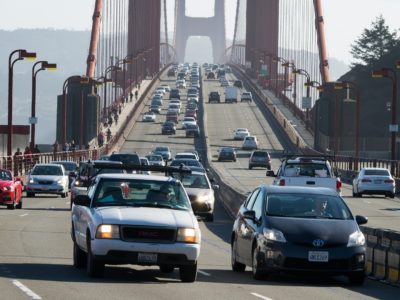The new BOEMRE – NOAA MOU: a good start, but more is needed
Cross-posted at CPRBlog.
I was excited to read this story in the LA Times, saying that BOEMRE and NOAA had reached an agreement that would give NOAA more say in decisions to approve offshore drilling. (Draw whatever conclusions you like about what my geeky excitement says about how boring my life must be.) This agreement is certainly needed, as the Deepwater Horizon Oil Spill Commission has noted, and as I’ve written in this paper forthcoming in Boston College’s Environmental Affairs Law Review.
As reported by the Times:
The accord will require regulators to “explain in writing any decision not to incorporate a comment by NOAA,” and allow the agency to respond to those explanations.
This is good news, but with some limitations that may not be obvious at first glance. The Memorandum of Understanding is largely aimed at increasing communication between the two agencies, and coordination of their respective work on outer continental shelf energy permitting (both for fossil fuel and renewable resources). It does provide that NOAA will have a chance to comment on BOEMRE’s draft 5-year plans for offshore oil and gas development before those plans are released to the public. It gives NOAA a chance to review exploration and development plans, the stage at which environmental review was most dramatically failing prior to the Deepwater Horizon blowout. It allows NOAA to be involved early on in the NEPA process at all stages of OCSLA decisionmaking. And it indeed does provide that
BOEMRE will document and explain in writing any decision not to incorporate a comment by NOAA and NOAA will have an opportunity to respond, if possible, prior to finalization of the relevant document.
That’s very good, as far as it goes. Getting NOAA in the loop on exploration plans and the like provides a badly needed opportunity for an outside look by an agency much less likely to be captured by oil and gas production interests. And requiring an explicit response to NOAA’s comments should both increase transparency and give NOAA a stronger incentive to put its time and effort into review.
But this MOU doesn’t go far enough. That’s not entirely the fault of the agencies; they are limited by the statutory scheme. One of the biggest problems with trying to get meaningful review of exploration plans is the artificial constraint of the statutory 30-day time limit on review. As long as that remains in place, it’s hard to see how there can be strong or effective environmental review by any agency at the project-specific level.
There is enough time to look carefully at 5-year programs, at least at the broad-scale level. Getting NOAA involved earlier in that process is undeniably a good thing. Input is much more likely to be welcomed and effective before BOEMRE is internally committed to any particular decision.
But there are problems that this MOU does not (and indeed cannot) address. NOAA has always had both the opportunity and the duty to participate in decisionmaking about offshore oil development, both under NEPA and the ESA. Its statutorily required reviews produced essentially no light in the run-up to approval of BP’s lease and exploration plan. My view is that NOAA (and other outside agencies) were ineffective reviewers for two primary reasons. First, they don’t have expertise in the area of probabilities of a blowout or other catastrophic spill, which turns out to be the key issue for these environmental reviews. And second, they don’t have enough resources to put into close review. These two factors together meant that outside reviewers, including but not limited to NOAA, did not question assumptions about either the likelihood of a blowout or the effectiveness of a spill response. Those are not problems of agency coordination, which is the topic of this MOU, but of individual agency expertise and resources. They can only be dealt with by the White House and Congress together through funding and employment decisions.






Reader Comments